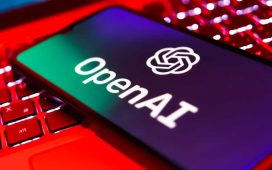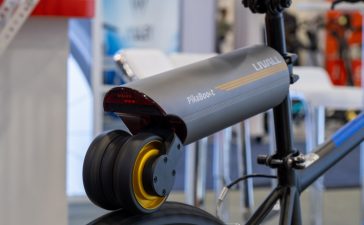Enterprise data management vendor Informatica will be adding generative AI capabilities to its Intelligent Data Management Cloud (IDMC) via the addition of ClaireGPT and AI copilot.
IDMC, which was launched in May 2021, is a suite that sits on top of enterprise databases and conducts data management from various data sources by ingesting, cataloging, and applying data governance rules.
The suite, which includes extract, transform, load (ETL), data observability with data quality, and master data management tools for different use cases, was updated last year to include new data engineering tools, such as MLOps tools, a low-code platform to create data connectors, and SaaS applications within the company’s 360 product line.
Claire, launched in 2019, is an integral part of IDMC and acts as a metadata-intelligence based automation engine.
The underpinnings of ClaireGPT and AI copilot
ClaireGPT and AI copilot are built atop Informatica’s experience and insights into data management, the metadata it has collected via IDMC and the combination of multiple large language models (LLMs) including OpenAI’s ChatGPT, Walia said.
“In the backend, we use a multi-LLM architecture that comprises three parts. We can read and tune Informatica-hosted elements and combine them with large language models and curate them over the metadata that IDMC has collected in such a way that ClaireGPT understands the context of many questions that a data user might ask out-of-the-box,” Walia explained.
“This process, which makes ClaireGPT fast, indulgent, and enriched, also requires some human prompts to be fed to the generative AI engine,” Walia added.
In addition to OpenAI, the company said it works with other LLM providers such as Google and other open source and free-access models.
The task of mixing or amalgamating LLMs is not a difficult task and other vendors are also working or experimenting in a similar manner, said Stewart Bond, research vice president at IDC.
“Most LLMs offer extensions and if they do so, mixing them might not be too hard,” said Holger Mueller, principal analyst at Constellation Research.
Informatica’s AI copilot, also, has been devised in a manner that is similar to ClaireGPT, Walia said, adding that copilot’s capabilities are built on the company’s experience in data management and data engineering.
“AI copilot is a flavor of ClaireGPT that channels workflow automation, data engineering patterns or models that Informatica has seen over the years at different enterprises in order to provide an advisory platform or guide that can be accessed via natural language processing,” the CEO said.
While Informatica’s AI copilot might sound very similar to Microsoft-owned GitHub’s Copilot, the product offerings are very different. GitHub Copilot is a code-completion and developer-assisting tool in contrast to Informatica’s AI copilot, which offers guidance for data management and engineering tasks.
The target audience for ClaireGPT and AI copilot
The new generative AI features that come with ClaireGPT and AI copilot are aimed at all data professionals including data stewards, data analysts, data architects, and data engineers, according to Informatica.
“The principal asks of customers from Informatica’s generative AI are two-fold — can AI give me intelligence and help me do things that I cannot do myself, and secondly can AI automate and improve the productivity of my enterprise,” Walia said.
While ClaireGPT is targeted towards users such as business analysts in an enterprise with the aim to help discover data insights faster and in more detail, AI copilot capabilities include generated classifications with no manual inputs, inferred data lineage, multi-column completeness analysis, and automapping, the company said.
Some of the use cases of ClaireGPT and AI copilot include setting data governance rules in plain language, getting support for discovering more data insights, and getting assistance while performing tasks such as creating a data pipeline or transforming data.
“ClaireGPT can be seen as both a front-end tool that allows people to create pipelines and data management workflows based on natural language and an operational feedback tool that allows management capabilities to be optimized over time,” said Hyoun Park, principal analyst at Amalgam Insights.
“On the front end, any data savvy end user who wants to add new data sources or data repositories to a data management environment can write out what they want and have IDMC do the hard work of structuring and defining the data relationships,” Park said.
The addition of these generative AI features, according to analysts, will not only help Informatica gain more customers but open up a new revenue opportunity from its SaaS offerings.
“SaaS market growth has largely been led by departments outside of IT. Informatica can use these new product announcements to push for sales, marketing, product, and other revenue-producing departments. In doing so, Informatica should see benefits in increasing its stickiness within current accounts and to continue growing as it further opens up non-IT markets,” Park said.
Copyright © 2023 IDG Communications, Inc.












